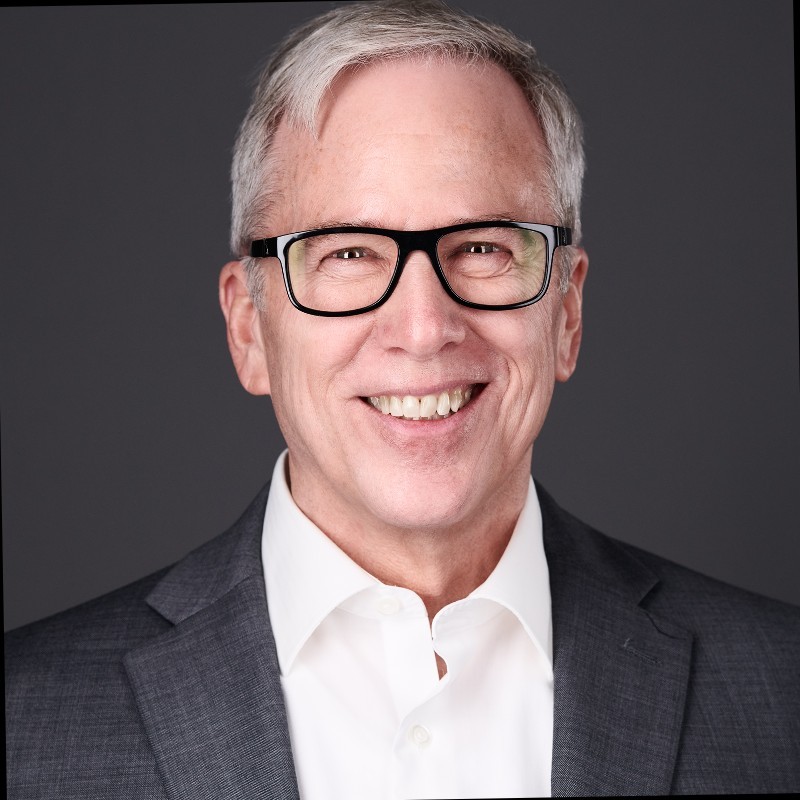Steve Resch, vice president of retirement strategies at leading reverse mortgage industry lender Finance of America, knows a lot about the intersection between the interests of financial planning professionals and reverse mortgage industry members.
Financial planners have been, and remain, one of the most sought-after referral partnerships for reverse mortgage professionals to establish ties with. That has certainly not diminished in the current business environment.
To get a better understanding of the kinds of concerns and interests financial planners have at the moment, RMD sat down with Resch to discuss some of what he is seeing right now.
Chris Clow/RMD: The reverse mortgage business in general is going through a time of reduced volume. But it seems like things are starting to pick back up. Conversations I’ve had with a lot of front-line originators have been more optimistic over the past few months. And I’m curious how this combines with what you do for Finance of America.
Steve Resch: In my position, I work directly with financial advisers. We have not really seen much change in our business recently, because a lot of what we do with the advisers involves using home equity for strategic planning purposes, and that doesn’t really go away in high interest rate environments.
We have still had numerous conversations and activity with the advisers. However, we’re finding — and I’ve seen this for a while, and it’s becoming more and more prevalent — that the most receptive part of our conversations is the use of home equity for long-term care management.
Clow: That’s interesting. Why is that?
Resch: This is something the advisers are very open to. I just came back from an investment conference last week, where I spoke on this topic, and they were very receptive, very open to it, because the advisers all need to figure out how to manage long-term care expenses for our clients. The clients are very hesitant to pay for an insurance solution, which can be very expensive — we could be talking $10,000 to $15,000 per year for an insurance solution.

So, if we can manage that risk by using home equity to manage the risk, and our only costs involved there are setting up, for example, a line of credit, then we’ve had limited costs. We’ve got cash-flow savings for the next 20 years that we would have been spending on an insurance solution. And yet, we’ve still managed the risk because we have a portion of home equity reserved for long-term care planning.
And that, of course, grows and compounds over time. It has an inflation factor built in just like an insurance policy does, because it’s tied to interest rates, which, of course, are tied to inflation. So, the advising community is very open and very excited about this because again, it’s managing the risk at low cost.
Clow: One of the predominant things I’ve heard from people in the business is that HECM for Purchase (H4P) is a sleeping giant just waiting for the right opportunity. How, if at all, has H4P entered the conversation with the financial planner partners you know?
Resch: It is definitely becoming more prevalent as well. Circling back to the conference I attended, I had two female advisers come up to me after the presentation. They told me they both used H4P in their divorce settlements. I think this is a phenomenal opportunity.
In fact, we’re working on a presentation about using H4P for divorce settlements, but aside from that, it’s a phenomenal opportunity. Your investment assets are what provide income; you don’t live off of home equity. Home equity is where you live and stay. So, using the reverse for purchase, they were able to get into homes they wanted to be in and not drain down any invested assets, which provide revenue for that. It’s a great opportunity.
Clow: Is it a “sleeping giant” in the business, or is that potentially overblown?
Resch: I do believe it’s a sleeping giant. I think it probably would have been more prevalent even a few years ago, if we hadn’t had the massive explosion in home appreciation brought on by COVID. I think that pushed a lot of people to the sidelines because it was really a cash purchase market. You didn’t have time to really go through financing — at least that’s the way it was in my area. everything was being purchased for cash and then you finance later.
So, I think the real estate markets in general, while still strong, have settled down. And you have opportunities to negotiate; you have opportunities to do financing. And I think this is an ideal time for the reverse for purchase to really start moving to the forefront.
Clow: I’m curious about the evolutions that you’ve observed in the conversation since the pandemic. There was a huge refinance volume that dropped off, and then you’ve also had industry consolidation, and home prices have not ticked down significantly at a national level. What, to you, is the most identifiable evolution of your conversations since the pandemic?
Resch: Our goal, or our objective, is always to teach, educate and present the opportunity of using home equity as a strategic component in a financial plan. So, prior to COVID, through COVID, that has still been our messaging: Let’s use home equity. We’re not paying attention to interest rates or changes in PLFs; we’re looking at the concept of using home equity to safeguard and enhance the retirement plan.
To that end, I would say that, over the past several years, that education is getting out there, and I do believe we are starting to turn that learning curve where advisers are much more open to it. Circling back to the conference I was at, we had numerous advisers who came up and what they said was, “Thank you for being here, it’s really great to be able to talk to someone in the industry in person.”
A lot of the issues that they had were that if they wanted to find out information about a reverse mortgage, and they would start Googling it, everything that popped up was from a lender. But we had an opportunity to have a one-on-one conversation without the pressure of a sale.
Clow: Is that important?
Resch: Yes, this is what these people need. They still need to be educated; you can read about it, you can run through scenarios, but they still need that conversation, that education. And I think we are still evolving toward that, where they’re much more open to talking, much more open to listening and asking questions, because they see the reality as well that we have the demographics that demand that we look at home equity as far as retirement planning goes.
So, again, our evolution, I don’t think I can tie it to anything that’s really happened as far as COVID or anything else. It’s all a learning curve, and I think we are really starting to move up that S-curve.






Many seniors that don’t hear or learn about using a reverse mortgage to help manage long term care risk and expense end up using home equity anyway by selling the house for the same purpose.